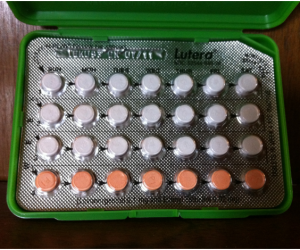One of the most effective methods of contraception, birth control pills (usually just called “the pill”) are used by millions of women around the world. The pill revolutionised family planning in the 1960s and, despite some setbacks with side effects, has been keeping women free of unwanted pregnancies for decades. Modern pills are now safer than ever, and suitable for use by most women.
How Does the Pill Work?
There are two main types of pill, but they both contain hormones which change the way the body works, meaning pregnancy is far less likely.
Both types of pill – the progesterone-only pill and the combined pill, which contains both oestrogen and progesterone – thicken the mucus in the cervix, which helps prevent sperm reaching an egg. Most pills also stop ovulation, meaning no eggs are released.
According to the NHS, both types are more than 99% effective if used correctly.
Advantages
The pill is usually safe, can be used for decades and has many advantages. There is no interruption to sex, it makes periods lighter and less painful (or, in the case of the progesterone-only pill, can stop them altogether), and can reduce your risk of cancer of the ovaries, womb and colon.
Disadvantages
The main drawback of the pill is that it must be taken at or around the same time every day in order to be effective. Misuse of the pill – for example, forgetting to take it – is what normally leads to its failure as a contraceptive. It may also not work if you have vomiting or diarrhoea, or if you are taking certain antibiotics or other medicines.
The other main disadvantage is that the pill doesn’t offer any protection against STIs. If you want to check yourself for STIs, you could use the free London STI testing kits offered by https://www.checkurself.org.uk.
Tips for Remembering
The easiest way to remember to take the pill every day is to work it into your daily routine – for example, when you get up in the morning, when you brush your teeth, or when you get ready for bed.
You could set an alarm on your phone to remind you, or ask your partner to give you a reminder each day – whatever works for you.






